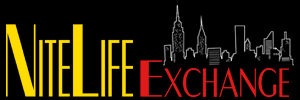
By Marilyn Lester***Possibly the only “down side” of singer-songwriter-pianist Tony DeSare is that he doesn’t appear in New York City often enough. Pandemic not withstanding, it’s been quite a while since this superlative entertainer has been h ere, so his return to Birdland Theater with his crew was cause for major celebration.
ere, so his return to Birdland Theater with his crew was cause for major celebration.
What DeSare has been doing (aside from a daily songfest on Facebook during the lockdown) is touring, mainly appearing with symphony orchestras. Milwaukee Symphony Orchestra, Seattle Symphony, Indianapolis Symphony Orchestra, Grand Rapids Symphony and Baltimore Symphony Orchestra are upcoming gigs. But it’s the small rooms, the cabaret and jazz spots, that suit him best. In an intimate space his charm, presence and ability to make meaningful connections with his audience shines most brilliantly. Two standards to start things off—Cole Porter gems, “It’s Alright With Me” and “It Was Just One of those Things”—immediately established DeSare’s chops in pianistic and vocal excellence.
While singing pianists most often gravitate to the Great American Songbook, and it is a DeSare specialty (particularly the repertoire of Frank Sinatra), he also includes a variety of material, such as Prince’s “Kiss” and “You Don’t Know Me” (Eddy Arnold, Cindy Walker)—made famous in the 1960s by Ray Charles. In the latter, DeSare’s emotive delivery revealed interpretive depth. But it’s not so m uch in a single vocal that DeSare’s storytelling ability is apparent. Like many singer-pianists, the style is low-key, reflecting balance on both functions of playing and vocalizing. DeSare has established a “formula,” however: he often begins a song at the mic, moves to the piano with the vocal, provides an instrumental midsection and then wraps up with his vocal. The entire sequence forms an arc. His “All I Need Is the Girl” (Jule Styne, Stephen Sondheim) was but one selection that neatly illustrated that format.
uch in a single vocal that DeSare’s storytelling ability is apparent. Like many singer-pianists, the style is low-key, reflecting balance on both functions of playing and vocalizing. DeSare has established a “formula,” however: he often begins a song at the mic, moves to the piano with the vocal, provides an instrumental midsection and then wraps up with his vocal. The entire sequence forms an arc. His “All I Need Is the Girl” (Jule Styne, Stephen Sondheim) was but one selection that neatly illustrated that format.
Songwriting is also a DeSare forte and a large part of his career. As a composer he wrote the theme song for the motion picture, My Date With Drew, several broadcast commercials and the soundtracks for several Hallmark Channel productions. His songwriting output contains a body of melodic work very much influenced by musical theater. “New Orleans Tan go,” for instance, had echoes of “Hernando’s Hideaway,” the tango written for The Pajama Game (Jerry Ross, Richard Adler)—but his work is by no means derivative. As a tribute to the now legendary arranger, Nelson Riddle, he wrote “Paris Will Also Have You,” a tune two of Riddle’s famous performers, Frank Sinatra and Ella Fitzgerald, would no doubt have gravitated to with gusto.
go,” for instance, had echoes of “Hernando’s Hideaway,” the tango written for The Pajama Game (Jerry Ross, Richard Adler)—but his work is by no means derivative. As a tribute to the now legendary arranger, Nelson Riddle, he wrote “Paris Will Also Have You,” a tune two of Riddle’s famous performers, Frank Sinatra and Ella Fitzgerald, would no doubt have gravitated to with gusto.
As for DeSare’s crew—bassist Dylan Shamat, drummer Michael Klopp and guitarist Edward Decker—the four comprise a well-oiled music machine with great heart. Decker, a disciple of the late, renowned guitar virtuoso, Buck Pizzarelli, like the master, plays a seven-string instrument, which gives a more robust sound than the usual six-string guitar. Decker was featured on several solos during the set, demonstrating his own virtuosic chops. Looking laid back during most of his playing, in solos he sprang into action, often with a frenzy that produced the most amazing display of speed and flexibility,  astounding with his first spotlight of the set, a swinging “Somebody Loves Me” (George Gershwin, Ballard MacDonald, Buddy DeSylva).
astounding with his first spotlight of the set, a swinging “Somebody Loves Me” (George Gershwin, Ballard MacDonald, Buddy DeSylva).
Shamat and Klopp also had solo moments, but were given the most opportunity to shine in the swinging closer, “I’m Gonna Live Till I Die” (Mann Curtis, Al Hoffman, Walter Kent). Both musicians are skilled in improv as well as carrying a melody line from time to time (easier for the bass, of course), in addition to their roles in providing rhythmic support. Klopp also excels at nuance (comparatively, not a lot of drummers do, or do it as well). He makes much use of brushes and cymbals to add heft and shading to the overall sound. In toto, this fast-tempo rendition of the song was a master class in jazz band performance: arranging, phrasing, improv and much more.
In contrast, DeSare’s encore was the man alone at the piano, with a thoughtful delivery of a homecoming love song for the City, “New York State of Mind” (Billy Joel). And how sweet and clever to end this rhapsodic tribute with a riff from George Gershwin’s “Rhapsody in Blue.”










